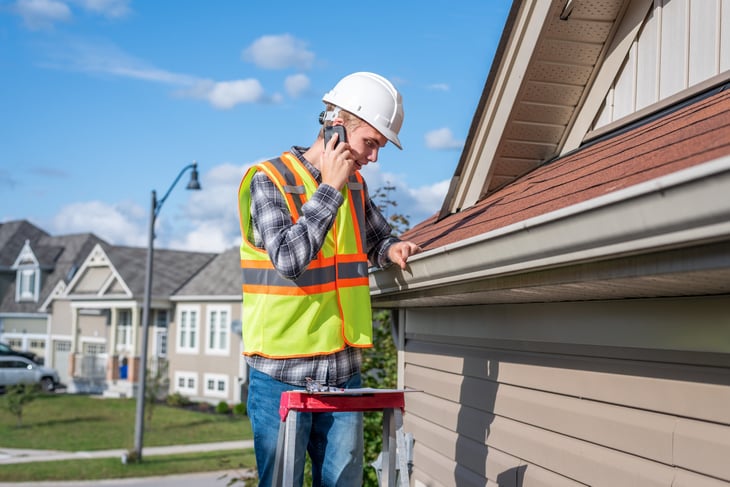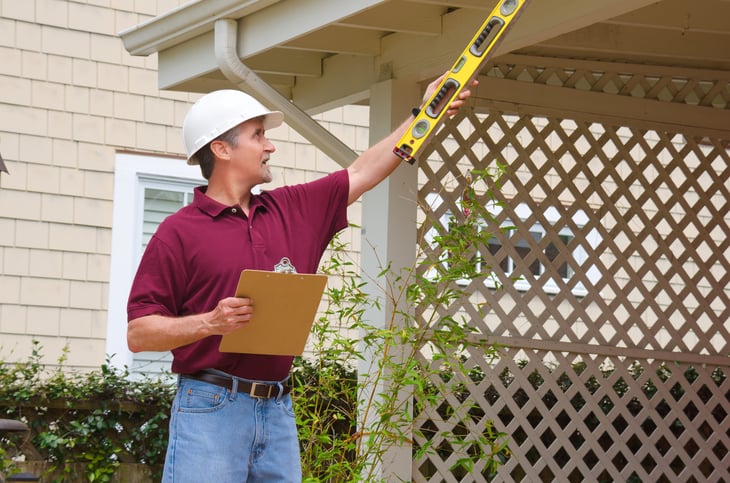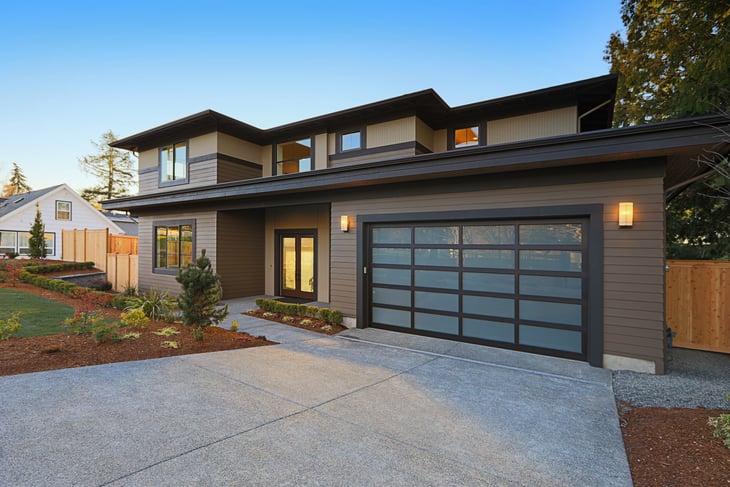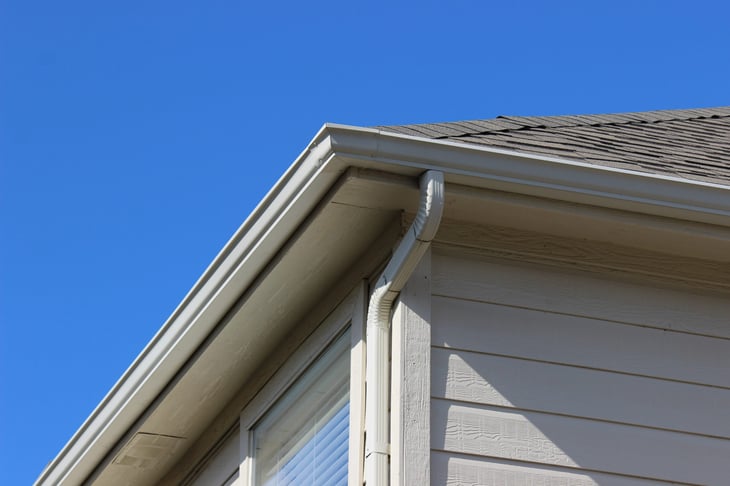
Editor’s Note: This story originally appeared on LawnStarter.
Gutters are rarely a homeowner’s primary concern. In fact, you might not even notice if a house has them when evaluating a potential purchase. This makes you wonder whether gutters really are necessary for a house. Let’s take a closer look.
What Is the Purpose of Gutters?

Gutters actually play an important role in a house – they control the flow of rainwater away from your home’s foundation.
A few reasons why gutters are important:
- Prevent soil erosion: During rain storms, sheets of water cascade off the roof onto the ground below. This relentless onslaught of water can create gulleys in your soil. Gutters collect the rainwater at the edge of the roof line, direct it toward downspouts and away from your home.
- Protect the foundation: Rainwater or stormwater is hard to control without a proper system, especially if the ground slopes toward your house. Exposure to stagnant water weakens the foundation of your structure to a point that it won’t be able to carry the weight of the building. Gutters channel water away to a safe spot through downspouts. Even in the heaviest rains, gutters may not capture all the water but will do enough to prevent disasters.
- Prevent basement floods: Without gutters, water flowing off the roof can pool around basement windows and infiltrate the basement and crawl spaces. A gutter will help homeowners effectively avoid basement flooding and the myriad of problems following that.
- Protect landscape: Water sheeting off the roof can pound and drown tender plants below or collect around flowers and other landscaping and erode the soil they need to thrive.
- Protect siding from stains: Rainwater flowing down the sides of homes carries leaves, tiny asphalt shingle particles, and dirt that can leave ugly stains. Oftentimes, this issue can escalate from just being an aesthetic concern to a much more serious issue like rotting, especially if your siding is wood.
- Prevent roof mold: Gutters play an essential role in keeping mold and mildew from growing around or on the house. These unwanted plants just need a little bit of moisture to grow. And with uncontrolled water rolling off the roof, your walls, basement, and facia board are all exposed to the risk of mold. Make sure that you schedule regular gutter cleaning.
When Are Gutters Absolutely Necessary?

In some cases, gutters are essential for keeping your house in good shape. These include:
When there is clay-rich soil around the house. Soil like clay loam or red clay absorbs water and retains moisture for a long time. Water easily seeps into clay, which then acts as a pipeline that continuously supplies water to your home’s foundation. Now you may want to tackle this situation with some soil amendments, but your house will still need a gutter system to drain rainwater into a ground-based gutter.
When there is a small or no roof overhang. Sheeting rainwater tends to form trenches from the force of water pounding the ground. Oftentimes, rainwater stays close to the foundation and causes costly damages over time. This is why houses with no roof overhang absolutely need gutters!
When Wouldn’t You Need Gutters?

In some circumstances, you might not need gutters. Some of these cases include:
When the land slopes away from your house, rainwater, stormwater, or thawing snow will naturally flow away from your house and you won’t need gutters to channel water from the foundation. If you’re living at the top of a hill, for example, you won’t have to deal with issues like basement flooding even if you don’t have gutters.
When your area has little rain or snow, your house will do just fine without gutters. Homes in arid climates or semi-arid areas don’t need gutters. They would simply be a waste of time and money.
When your roof has a long overhang, the water will safely fall far enough away from the house and foundation.
When your roof is designed to direct water to one side only. If your house has a roof that slants only to one side, you may not need gutters. Make sure water from the roof is not damaging the ground in any way, however.
When your home is surrounded by concrete that is impervious to water, you might not need gutters. Rainwater flowing down the roof can hit the ground and keep flowing to the rest of the property without damaging landscaping or pooling around the foundation.
When you have a slab for a roof, you only need to add a spout to direct the rainwater away from the roof to a safe spot and you’re good to go!
Do You Need Gutters for the Whole House?

There is no short answer to this one. Whether your entire house needs gutters depends upon a few factors. The size of the house and the number of slopes you have dividing the roof are the two things that matter the most here.
Some important considerations while deciding if you need gutters for the whole house would be:
- If you have a gable roof where two sloping sides meet in a ridge, you only need end gutters on the two sides that correspond to the slopes and can forgo the section where slopes come together.
- If your house has multiple slopes, all of the slopes should have a gutter at the edge. This is because every slope will drain rainwater in opposite directions of the house and you need to control it with the help of proper gutters and downspouts on each side.
- Houses with flat roofs don’t necessarily need gutters on all sides, but again, the overall size of the roof is a deciding factor here. Without slopes, you might need to install scuppers that can direct water to the edges of your roof where gutters are. If you have a large house, a flat roof will need multiple downspouts to prevent water from pooling up.
FAQ About the Necessity of Gutters

What Can You Use Instead of Gutters?
If your area doesn’t get heavy rains, you can use box gutters, drip paths, drip edges, ground gutters, or underground or above-ground rain chains as an alternative.
How Many Downspouts Should an Average-Sized House Have?
Downspouts should be installed every 20 to 40 feet of the gutter. This means an average house would have around two to four downspouts.